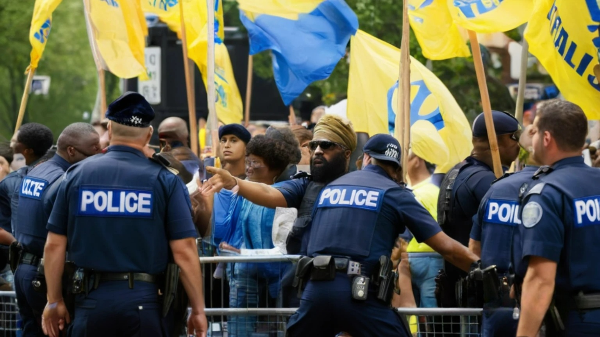Iran’s Plan to Strike Back Against the U.S.
Iran’s Military Preparations Following U.S. Attacks
Loading...

New Delhi has criticized Ottawa for its lack of action against Khalistan separatists as India mourns the 329 victims of a 1985 plane bombing.
India’s High Commission in Canada condemned the recurring glorification of terrorism in the country while mourning the victims of the 1985 Air India flight 182 bombing on Sunday.
The flight, which was en route from Montreal to London and onward to Delhi and Bombay (now Mumbai), exploded mid-air due to a bomb allegedly planted by Sikh extremists. The attack claimed the lives of 329 people, including 268 Canadian citizens, mostly of Indian origin, and 24 Indians.
Canada hosts the largest Sikh population outside India, but also houses a significant number of radical Sikhs advocating for a separate nation state. The bombing is believed to have been carried out by such radicals in retaliation for a military operation led by then-Prime Minister Indira Gandhi against Sikh militants.
In its statement, the Indian High Commission pointed out that the perpetrators and accomplices of the "heinous act" remain at large. Charges against the alleged mastermind, Talwinder Singh Parmar, were eventually dropped; he was later killed in India.
"The glorification of terrorism, including the bombing of AI-182 in 1985, is reprehensible and should be condemned by all peace-loving nations and individuals," the Indian High Commission emphasized. It lamented that such actions are allowed to become "routine" in Canada.
Indian Foreign Minister S. Jaishankar highlighted that the anniversary of the bombing serves as a poignant reminder of why terrorism must never be tolerated.
Meanwhile, during a mourning ceremony in Vancouver, British Columbia, Khalistan activists were observed displaying flags and posters condemning India, according to independent journalist Mocha Bezirgan. Footage posted by Bezirgan showed mourners engaging in disputes with Khalistan activists, with one grieving family member asserting, "This has nothing to do with Khalistan."
These developments unfold against a backdrop of strained relations between New Delhi and Ottawa following allegations by Canadian Prime Minister Justin Trudeau last year linking "Indian agents" to the murder of Sikh separatist Hardeep Singh Nijjar on Canadian soil.
India has vehemently denied these claims and accused Canada of sheltering "terrorists." Tensions escalated recently when the Canadian Parliament’s House of Commons observed a moment of silence to mark the first anniversary of Nijjar's death. Elsewhere, activists staged a mock trial for Indian Prime Minister Narendra Modi outside the Indian consulate in Vancouver.
Nijjar’s murder is linked to another case involving an attempted assassination of US-based lawyer and Khalistan leader Gurpatwant Singh Pannun, founder of the banned Sikhs for Justice organization in India. Both Pannun and Nijjar have been designated as terrorists by New Delhi. Last December, Pannun issued indirect threats, advising Sikhs to avoid an Air India flight on a specific day.
Iran’s Military Preparations Following U.S. Attacks
Troops remain in five strategic locations, raising fears of renewed tensions and long-term occupation.
Opposition forces have taken control of the capital after a significant offensive. Here is how it unravelled.
